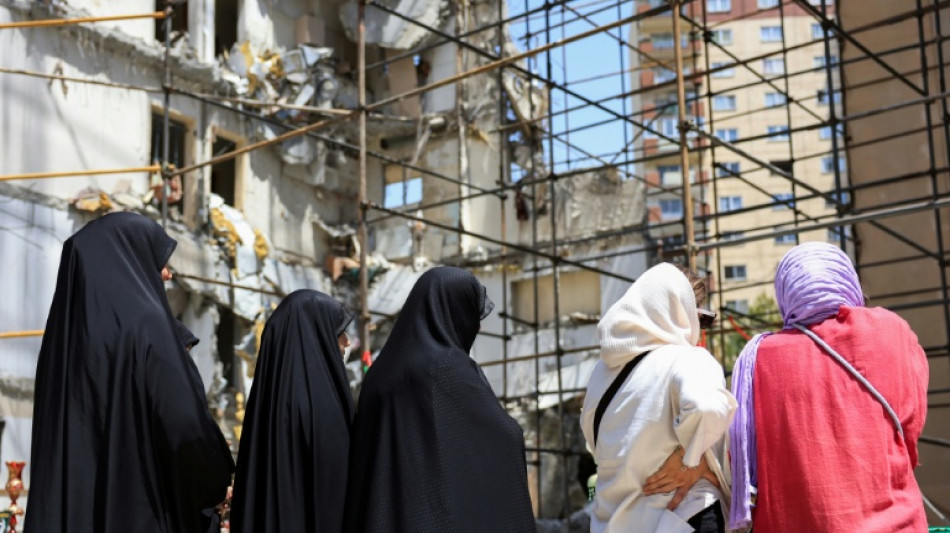
-
 Kenya athletics trials under shadow of Chepngetich suspension
Kenya athletics trials under shadow of Chepngetich suspension
-
Stocks mixed with trade and earnings in focus

-
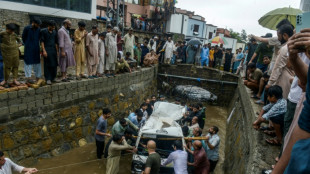 Pakistan landslide after heavy rain kills 3, with 15 missing
Pakistan landslide after heavy rain kills 3, with 15 missing
-
UK gives green light to £38 bn Sizewell C nuclear plant
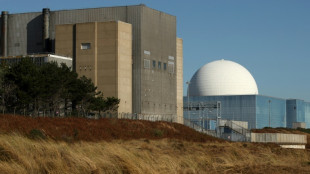
-
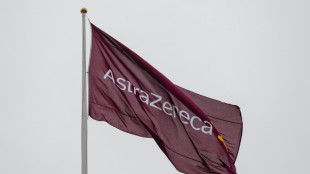 AstraZeneca says to invest $50 bn in the US
AstraZeneca says to invest $50 bn in the US
-
New-look Australia swim team use worlds to build towards LA 2028

-
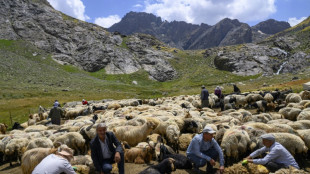 Kurdish farmers return to mountains in peace as PKK tensions calm
Kurdish farmers return to mountains in peace as PKK tensions calm
-
Bangladesh mourns as toll from jet crash at school hits 27
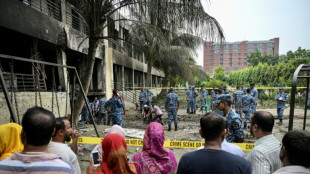
-
 'Gloves are off': cancelled Late Show host comes out swinging for Trump
'Gloves are off': cancelled Late Show host comes out swinging for Trump
-
India face Bumrah dilemma as England search for top order stability

-
 MAGA-style 'anti-globalist' politics arrives in Japan
MAGA-style 'anti-globalist' politics arrives in Japan
-
Anxiety and pride among Cambodia's future conscripts
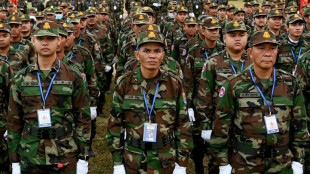
-
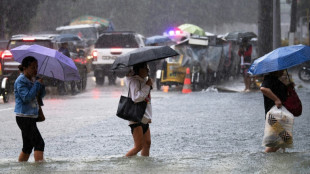 Philippines flooding displaces thousands, two missing
Philippines flooding displaces thousands, two missing
-
Stocks mixed with trade and earnings in focus; Tokyo reopens with gains

-
 Brazilian judge threatens Bolsonaro over speech shared on social media
Brazilian judge threatens Bolsonaro over speech shared on social media
-
Without papers: Ghost lives of millions of Pakistanis
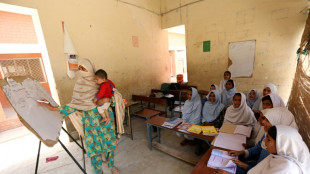
-
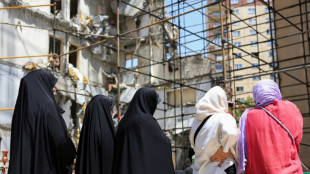 A month after ceasefire with Israel, Iranians fear another war
A month after ceasefire with Israel, Iranians fear another war
-
Anxious parents face tough choices on AI

-
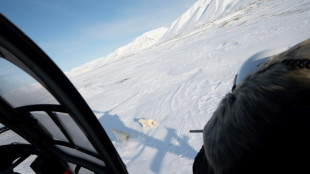 The eye-opening science of close encounters with polar bears
The eye-opening science of close encounters with polar bears
-
Iran says will not halt nuclear enrichment ahead of European talks
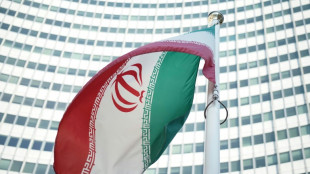
-
 Del Castillo and Spain 'full of hope' ahead of Germany Euro 2025 semi
Del Castillo and Spain 'full of hope' ahead of Germany Euro 2025 semi
-
Tiger watches son Charlie's tough start at US Junior Amateur

-
 Judge presses Trump admin on Harvard funding cuts
Judge presses Trump admin on Harvard funding cuts
-
France jails three in champagne 'slaves' case
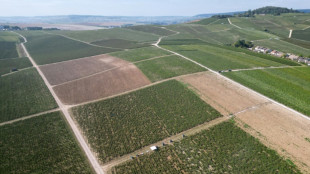
-
 Venus Williams returns with doubles win at DC Open
Venus Williams returns with doubles win at DC Open
-
White House restricts WSJ access to Trump over Epstein story
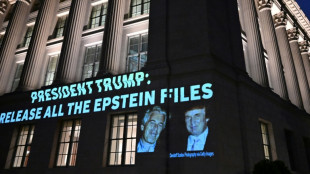
-
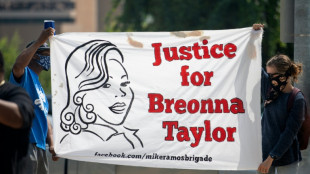 Ex-US policeman in Breonna Taylor killing sentenced to 33 months
Ex-US policeman in Breonna Taylor killing sentenced to 33 months
-
Venezuela says migrants were tortured in Salvadoran prison
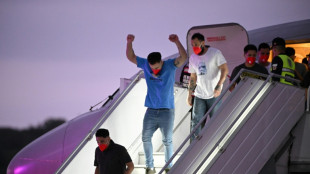
-
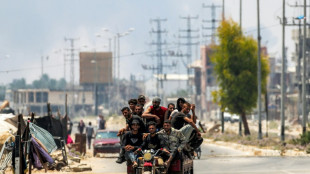 WHO says Gaza facilities attacked as Israel expands operations
WHO says Gaza facilities attacked as Israel expands operations
-
Alcaraz withdraws from Montreal event for Wimbledon recovery

-
 Leftist leaders gather in Chile with democracy 'under threat'
Leftist leaders gather in Chile with democracy 'under threat'
-
Hunter Biden slams Clooney on anniversary of father's campaign exit

-
 Stocks mostly rise as markets weigh earnings optimism and tariff fears
Stocks mostly rise as markets weigh earnings optimism and tariff fears
-
Hunter Biden angrily slams Clooney on anniversary of father's campaign exit

-
 'Cosby Show' actor Malcolm-Jamal Warner dies in drowning in Costa Rica
'Cosby Show' actor Malcolm-Jamal Warner dies in drowning in Costa Rica
-
Olympic champion Marchand to focus on medleys at worlds

-
 Trump adds pressure on new stadium deal for NFL Commanders
Trump adds pressure on new stadium deal for NFL Commanders
-
Childhood fan Mbeumo joins Man Utd re-build

-
 NBA Clippers reach one-year deal with star guard Paul: reports
NBA Clippers reach one-year deal with star guard Paul: reports
-
Leftist leaders gather in Chile warning democracy 'under threat'

-
 England's Carter tipped to perform in Euro 2025 semi despite 'disgusting' abuse
England's Carter tipped to perform in Euro 2025 semi despite 'disgusting' abuse
-
How Trump turned his Truth Social app into a megaphone

-
 Alaska Airlines resumes service after IT outage grounds planes
Alaska Airlines resumes service after IT outage grounds planes
-
Vatican hardens tone on Israel after Gaza parish strike
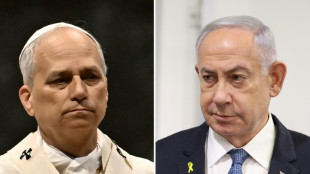
-
 German govt looks to roll back tax hike on flights
German govt looks to roll back tax hike on flights
-
Markets caught between earnings optimism and tariff fears

-
 Pogacar 'ready to fight Vingegaard' for Tour de France title
Pogacar 'ready to fight Vingegaard' for Tour de France title
-
Western nations call for immediate end to Gaza war as Israel expands offensive
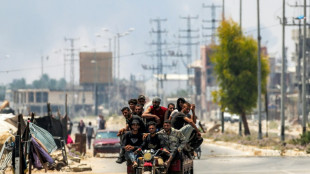
-
 Siraj expects Bumrah to feature for India in fourth Test
Siraj expects Bumrah to feature for India in fourth Test
-
England won't play nice against India warns Brook


A month after ceasefire with Israel, Iranians fear another war
The ceasefire that ended Iran's 12-day war with Israel has held for nearly a month without incident, but many Iranians remain uneasy, struggling with uncertainty as fears of another confrontation linger.
"I don't think this ceasefire will last," said Peyman, a 57-year-old resident of Shiraz in Iran's south, one of numerous cities hit last month as Israel unleashed an unprecedented bombing campaign against its staunch rival.
The Israeli offensive targeted key nuclear facilities and military sites, killing top commanders and nuclear scientists and hundreds of other people, while also wreaking havoc in some residential areas.
The attacks triggered the fiercest fighting in history between the longtime foes, ending with a ceasefire announced on June 24.
But Israel has signalled it could return to fighting if Iran attempts to rebuild nuclear facilities or carry out any actions deemed a threat, such as moving to develop an atomic bomb -- an ambition Tehran has consistently denied it was pursuing.
Iran, in turn, has vowed to deliver a harsh response if attacked again.
Nuclear diplomacy with the United States -- which briefly joined the war with strikes on key Iranian nuclear sites -- has stalled, deepening a sense of uncertainty about what lies ahead.
"I am scared the war would start again," said Hamid, a 54-year-old government employee who gave only his first name.
"It will lead to the death of more innocent people and the destruction of the country's infrastructure."
During the war, Israel struck major Iranian cities including the capital Tehran, hitting military sites, government buildings and the state television headquarters.
More than 1,000 people were killed in Iran, according to authorities. Retaliatory missile and drone attacks killed 29 people in Israel.
- 'Don't want to flee again' -
Many residents fled Tehran, seeking refuge in other parts of the country, even though few regions were untouched by the blasts and smoke-covered skies.
Nearly a month later, a series of fires that broke out across Iran in recent days -- including one at a major oil facility -- have triggered speculations which officials were quick to dismiss, denying any acts of sabotage.
"This war really frightened me," said 78-year-old housewife Golandam Babaei, from the western Kermanshah province.
She lived through the Iran-Iraq war of the 1980s, a painful memory for many of her generation.
"I kept telling myself, please God, do not let the past repeat itself," Babaei told AFP.
The war with Israel, although much shorter and fought mostly with air strikes and missiles rather than by ground forces, revived grim memories of the conflict with Iraq.
That war, triggered by an Iraqi invasion in 1980, killed an estimated 500,000 people on both sides.
It featured chemical warfare and prolonged front-line bombardments, scarring Iranians in the then-nascent Islamic republic born out of the 1979 revolution.
Since then, for decades, Iran had managed to keep conflicts away from its territory. But now after the 12-day war with Israel, some Iranians feel a profound sense of vulnerability.
"I kept thinking I don't want to flee again, we have nowhere to go. I cannot run to the mountains like the past," said Babaei.
- Uncertain future -
For Ali Khanzadi, a 62-year-old war veteran, the conflict with Israel highlighted a change compared to the 1980s when "we didn't have any advanced military equipment" to fight the Iraqis.
Khanzadi, who was wounded in battle in 1983, said that the war with Israel, while much shorter, had a more sinister dimension.
Unlike in the past, modern military technology means "they can kill a child in his sleep remotely using a drone," he said.
In the face of the Israeli threats and attacks, Iranian authorities have repeatedly invoked national unity.
Supreme leader Ayatollah Ali Khamenei has said the offensive was aimed at toppling the Islamic republic's clerical system, and urged Iranian diplomats and military officials to proceed with "care and precision" as the country cautiously moves on.
Tehran has said it remained open to nuclear diplomacy with the United States which the war had derailed, but officials have expressed concerns over renewed attacks and demanded unspecified US guarantees to resume negotiations.
Ordinary Iranians appear to share fears that the conflict could erupt again.
"I hope that this will not happen," said Hamid.
Babaei said she was praying "for peace, for us to remain safe in our homes".
H.Nasr--SF-PST
